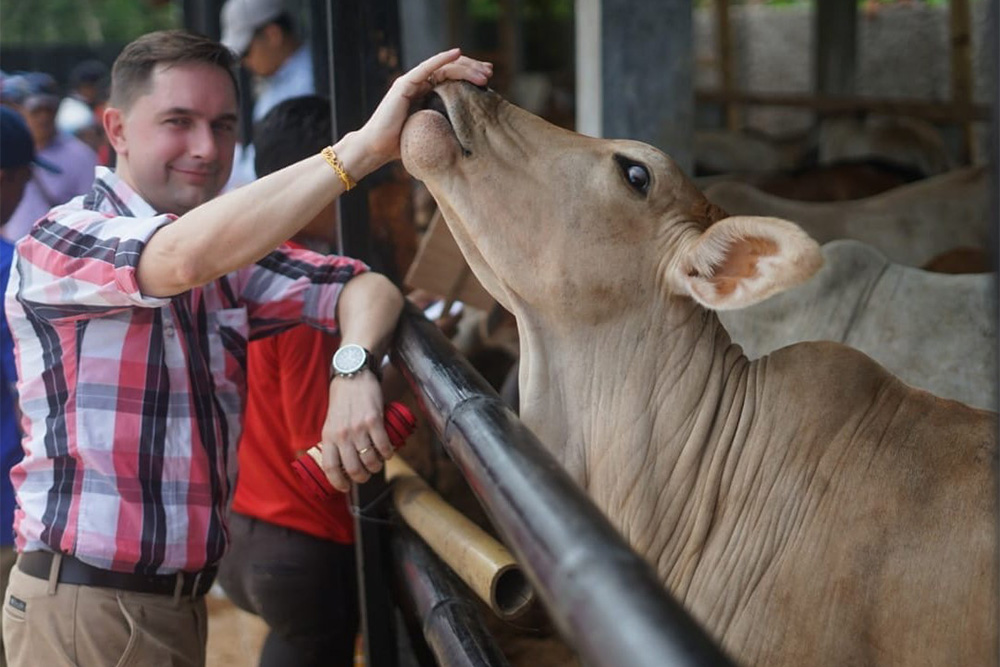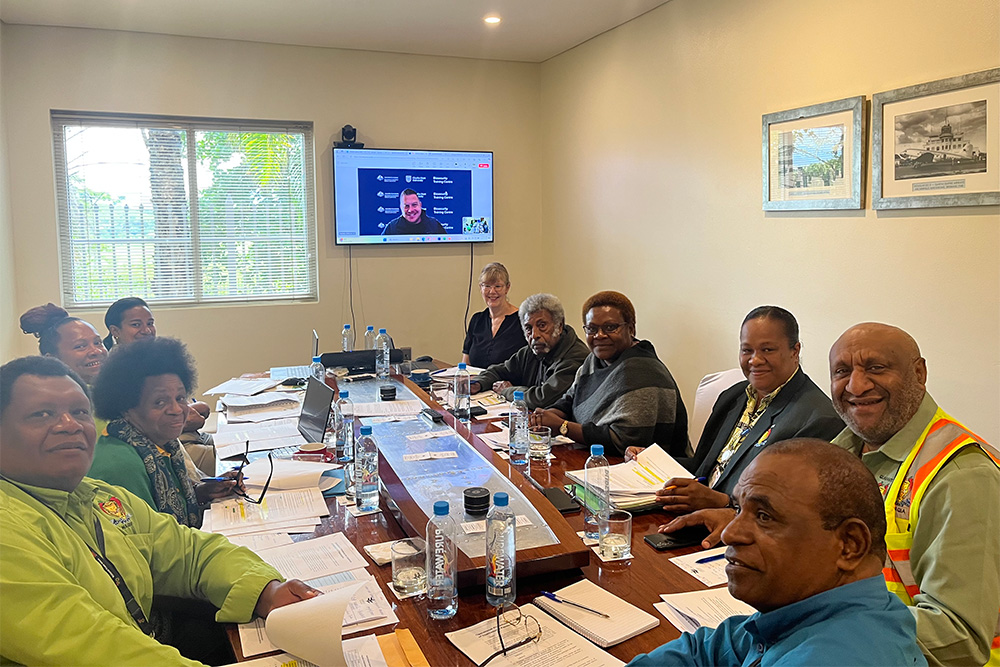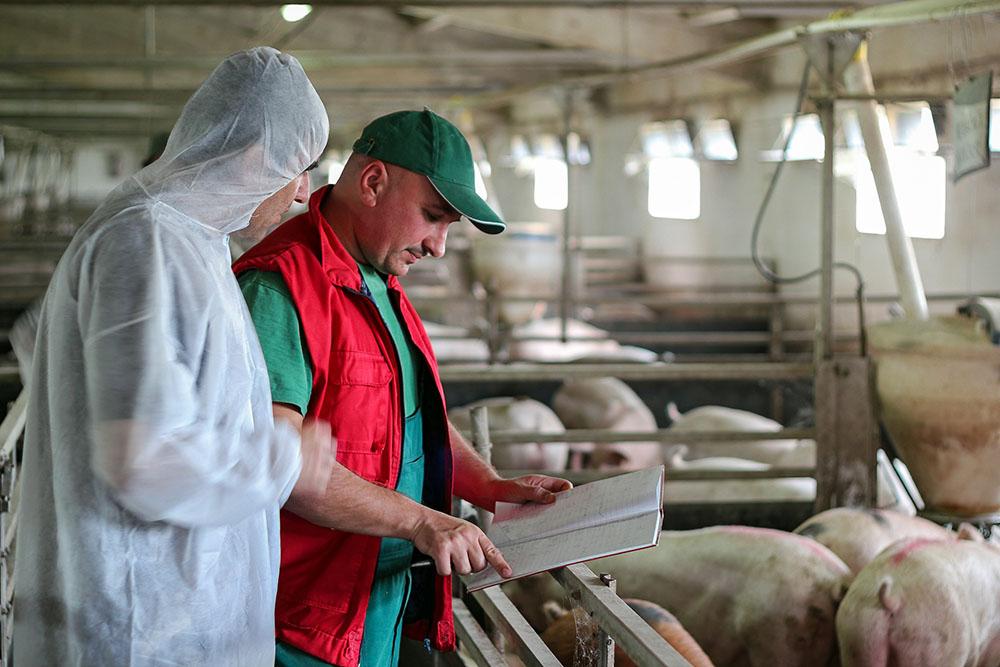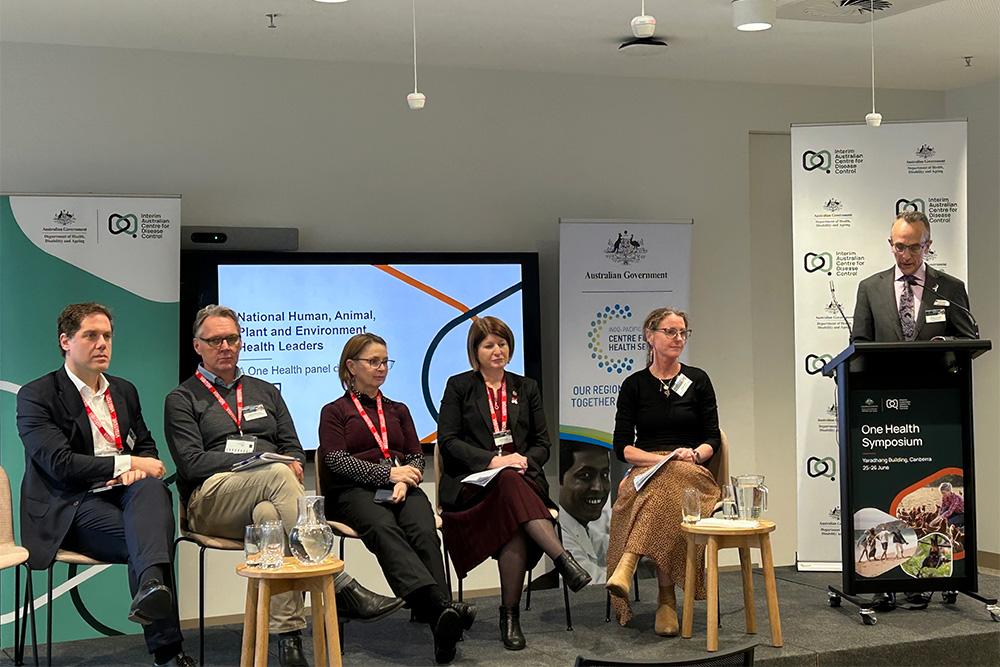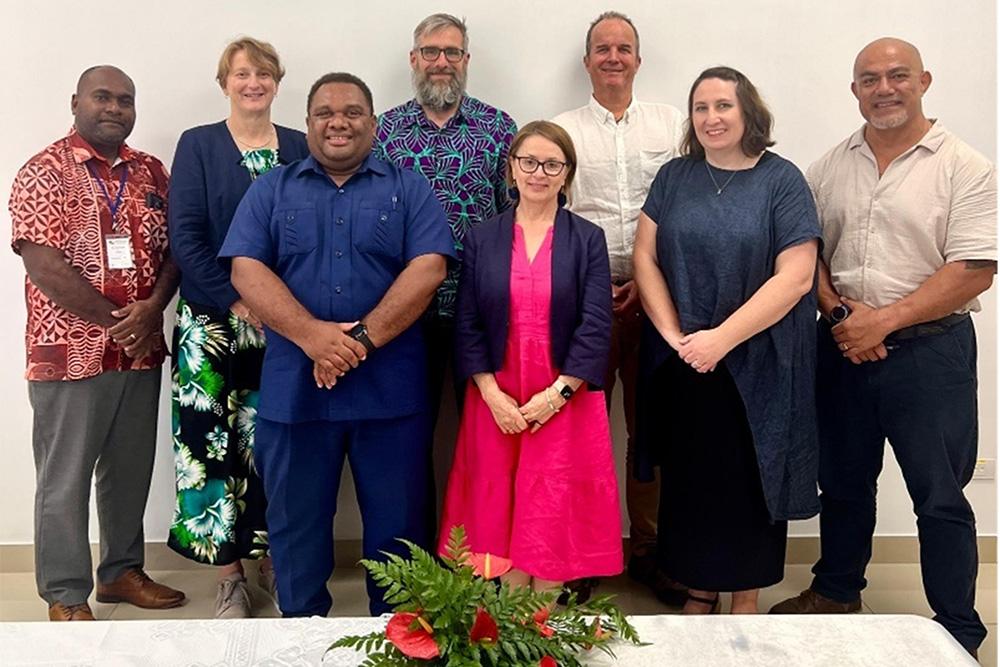Australia and Papua New Guinea (PNG) share a longstanding, collaborative relationship on biosecurity. As neighbours separated by only 150 kilometres, we face shared biosecurity challenges in our region, including the risk of exotic pests and diseases crossing the Torres Strait.
To strengthen this partnership, the Australian Government Department of Agriculture, Fisheries and Forestry (DAFF) established the PNG Biosecurity Twinning Program in late 2024. Funded through the Department of Foreign Affairs and Trade’s PNG Institutional Partnerships Program, the initiative aims to build long-term institutional relationships with PNG’s Biosecurity Authority (PNGBA).
The program supports biosecurity capability uplift in PNG to reduce the risk of exotic pest and disease incursions that could impact both PNG and Australia. This effort follows a commitment by the Australian Government to PNG to enhance cooperation on common security interests, including biosecurity, through the Australia-Papua New Guinea Bilateral Security Agreement signed in December 2023. The Program commenced in late 2024–25 and is expected to run until 2026–27.
DAFF and PNGBA have established a governance framework to guide delivery of the program’s activities, which include government-to-government staffing and knowledge exchanges, alongside procurement of technical services and expertise. To date, the program has:
- developed a multi-year workplan focused on uplifting capability and knowledge to manage biosecurity risks across regulated and unregulated pathways
- advanced arrangements for DAFF biosecurity officers to deploy to PNG to mentor and train PNGBA staff, as well as reverse deployments of PNGBA officers to Australia to observe Australian biosecurity risk management approaches. These exchanges are supported by reviews and updates to PNGBA’s border clearance standard operating procedures
- delivered upskilling activities related to managing biosecurity incidents during exotic pest or disease outbreaks, biosecurity risk assessments linked to trade goods, and in-country biosecurity needs assessments for key PNG entry points.
Earlier this year, the program welcomed George Hughes as its new Program Manager. George, from DAFF’s Office of the Chief Veterinary Officer (OCVO), brings extensive international experience, including roles as Agriculture Counsellor in Jakarta and a secondment to the World Organisation for Animal Health in Bangkok. He has played a key role in regional efforts to combat transboundary animal diseases and has supported Indonesia’s response to recent outbreaks of foot-and-mouth and lumpy skin disease. George has just relocated to PNG with his family to oversee the program’s on-the-ground delivery.
Supporting George is Australia-based Project Officer Christine Morton, who is responsible for planning and managing the program’s workplan and activities. Both receive technical support from OCVO, the Office of the Chief Plant Protection Officer in the Plant Protection and Environmental Biosecurity Division and the Biosecurity Operations Division.
The program’s activities aim to generate sustainable improvements in PNG’s border operations and outbreak response capabilities through targeted training, enhanced information sharing, and streamlined decision-making. A key objective is to reduce pre-border biosecurity risks to Australia, strengthening protections across the biosecurity continuum.
